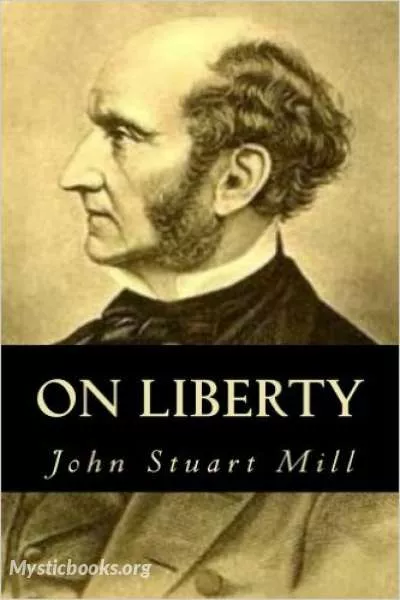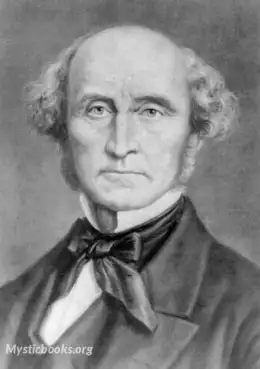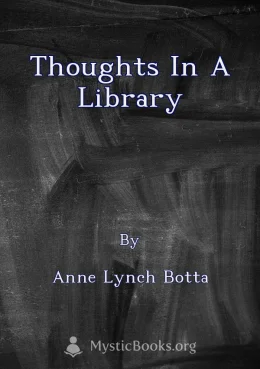
On Liberty
'On Liberty' Summary
John Stuart Mill opens his essay by discussing the historical "struggle between authority and liberty," describing the tyranny of government, which, in his view, needs to be controlled by the liberty of the citizens. He divides this control of authority into two mechanisms: necessary rights belonging to citizens, and the "establishment of constitutional checks by which the consent of the community, or of a body of some sort, supposed to represent its interests, was made a necessary condition to some of the more important acts of the governing power." Because society was—in its early stages—subjected to such turbulent conditions (i.e. small population and constant war), it was forced to accept rule "by a master." However, as mankind progressed, it became conceivable for the people to rule themselves. Mill admits that this new form of society seemed immune to tyranny because "there was no fear of tyrannizing over self." Despite the high hopes of the Enlightenment, Mill argues that the democratic ideals were not as easily met as expected. First, even in democracy, the rulers were not always the same sort of people as the ruled. Second, there is a risk of a "tyranny of the majority" in which the many oppress the few who, according to democratic ideals, have just as much a right to pursue their legitimate ends.
In Mill's view, tyranny of the majority is worse than tyranny of government because it is not limited to a political function. Where one can be protected from a tyrant, it is much harder to be protected "against the tyranny of the prevailing opinion and feeling." The prevailing opinions within society will be the basis of all rules of conduct within society; thus there can be no safeguard in law against the tyranny of the majority. Mill's proof goes as follows: the majority opinion may not be the correct opinion. The only justification for a person's preference for a particular moral belief is that it is that person's preference. On a particular issue, people will align themselves either for or against that issue; the side of greatest volume will prevail, but is not necessarily correct. In conclusion to this analysis of past governments, Mill proposes a single standard for which a person's liberty may be restricted:
That the only purpose for which power can be rightfully exercised over any member of a civilized community, against his will, is to prevent harm to others. His own good, either physical or moral, is not a sufficient warrant ... Over himself, over his body and mind, the individual is sovereign.
Mill clarifies that this standard is solely based on utility, not on natural rights. According to Mill, children and "barbarian" nations are benefited by limited freedom. Just despots, such as Charlemagne and Akbar the Great, were historically beneficial to people not yet fit to rule themselves.
- S. Mill concludes the Introduction by discussing what he claimed were the three basic liberties in order of importance:
- The freedom of thought and emotion. This includes the freedom to act on such thought, i.e. freedom of speech
- The freedom to pursue tastes (provided they do no harm to others), even if they are deemed "immoral"
- The freedom to unite so long as the involved members are of age, the involved members are not forced, and no harm is done to others
While Mill admits that these freedoms could—in certain situations—be pushed aside, he claims that in contemporary and civilised societies there is no justification for their removal.
Book Details
Language
EnglishOriginal Language
EnglishPublished In
1859Authors

John Stuart Mill
England
John Stuart Mill usually cited as J. S. Mill, was an English philosopher, political economist, Member of Parliament, and civil servant. One of the most influential thinkers in the history of classical...
Books by John Stuart MillDownload eBooks
Listen/Download Audiobook
- Select Speed
Related books

Flame and Shadow by Sara Teasdale
''Flame and Shadow'' is a collection of poetry by Sara Teasdale, published in 1920. It reflects a range of human emotions, exploring themes of love, l...

Thoughts in a Library by Anne Lynch Botta
Anne Lynch Botta's *Thoughts in a Library* is a collection of essays that explore the power and influence of literature. Botta, a prominent figure in...

New Freedom by Thomas Woodrow Wilson
Published in 1913, *New Freedom* is a collection of speeches and essays by Woodrow Wilson, then President of the United States. Wilson, a leading figu...

Atlantic Classics by Various
This collection, titled 'Atlantic Classics by Various,' brings together sixteen essays initially deemed worthy but ultimately passed over for publicat...

Little Eyolf (Mencken Translation) by Henrik Ibsen
Little Eyolf is a play by Henrik Ibsen that explores the complex and often painful dynamics within a family grappling with loss and grief. It delves i...

A Woman and the War by Frances Evelyn (Daisy) Greville
It is not without serious reflection that I have collected these thoughts in war time to offer in book form to those who may care to read and ponder t...

Welcome and Farewell by George Pope Morris
This book, "Welcome and Farewell" by George Pope Morris, is a compilation of the poet's work, reflecting his diverse interests and experiences. The c...

Poems of Schiller - 2nd Period by Friedrich Schiller
This volume contains the poetry written by Friedrich Schiller during his second creative period, beginning in 1785. This era of Schiller's work is ma...

If I Can Stop One Heart From Breaking by Emily Dickinson
This collection of poems by Emily Dickinson explores themes of love, loss, death, and the human condition. Dickinson's unique style, characterized by...

Trifles by John Charles McNeill
This collection of essays and poems explores the nature of trifles, those seemingly insignificant things that can have a profound impact on our lives....
Reviews for On Liberty
No reviews posted or approved, yet...